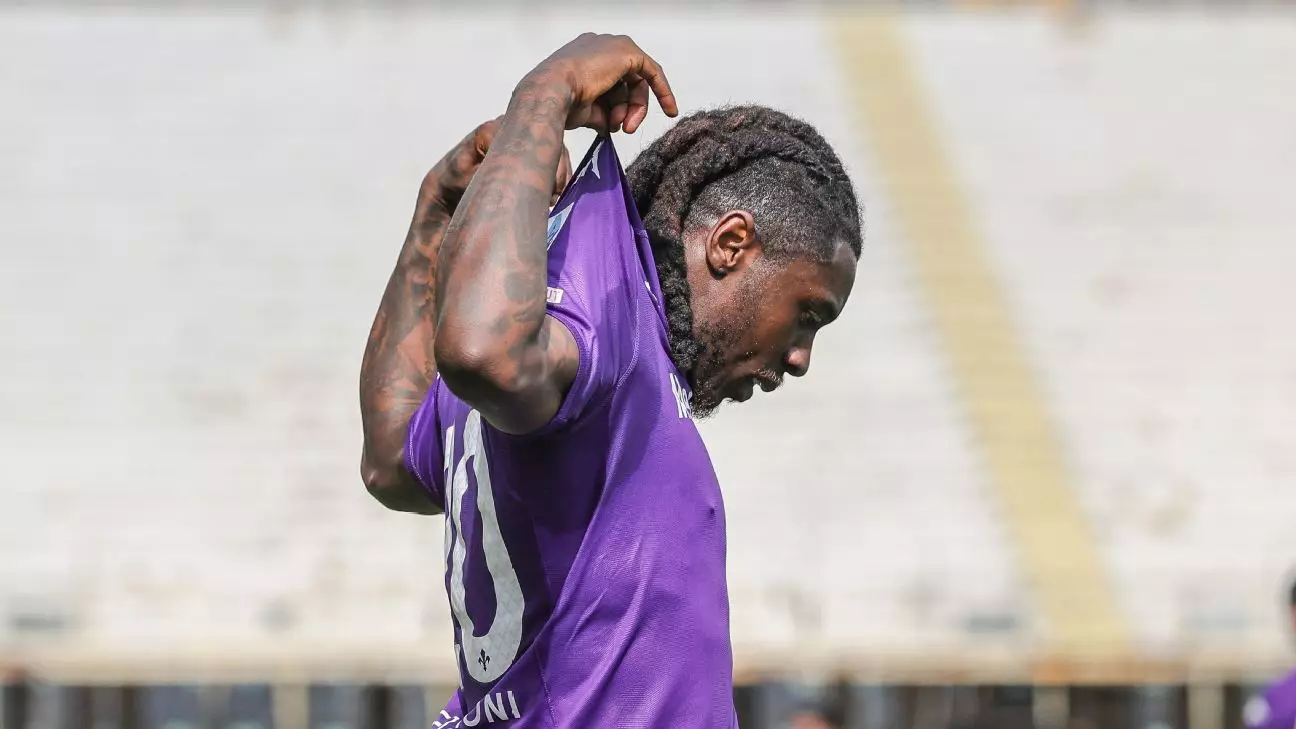When it comes to football, the transfer window is a period filled with speculation, excitement, and strategic maneuvering. This summer, clubs across Europe are prowling the market like sharks, adapting to the rapidly changing landscapes of team compositions, financial powers, and the ambitions of players. As the timeline narrows, several high-profile moves are coming to the forefront, signaling a pivotal moment in the Premier League and European football at large.
Arsenal’s Dilemmas: A Change in Strategy
Arsenal’s pursuit of Benjamin Sesko, the promising striker from RB Leipzig, is facing turbulence, primarily arising from financial negotiations. Initially viewed as a priority in their quest for a new frontman, talks have reportedly stalled due to Sesko’s wage demands. Mikel Arteta’s squad needs a No. 9 capable of leading a title charge, but the Gunners are now reassessing their position. This indecision highlights a growing trend: clubs are becoming increasingly cautious when it comes to high-value young talent, weighing their aspirations against fiscal responsibility.
The situation around Oleksandr Zinchenko illustrates this approach further. While the Ukrainian left-back has shown flashes of brilliance, his limited playing time last season has prompted Arsenal to evaluate whether they can recoup their investment. With a tag of £17 million, clubs from Saudi Pro League and AC Milan are circling, but questions arise—can Zinchenko contribute consistently to a title-winning squad, or has he become a financial burden?
Manchester United’s Striker Sagas
Meanwhile, Manchester United’s attempts to secure a robust center forward continue to wade through murky waters. Moise Kean, the Fiorentina forward, appears to be on their radar, yet skepticism abounds. His underwhelming performance during previous stints in the Premier League raises alarms. Striking gold with players from Serie A is no longer a guaranteed proposition, particularly after experiences with Rasmus Hojlund and Joshua Zirkzee.
The stark reality for teams like United is the realization that the hunt for a striker does not solely revolve around current stats—it’s also about understanding the dynamics of a player’s historical performance. Kean’s recent consistency offers a glimmer of hope, with 25 goals last season, but the scars of previous English league failures linger, constraining United’s willingness to chase after him aggressively.
In a similar vein, the pursuit of Viktor Gyökeres from Sporting CP adds further complexity. As Arsenal eyes him as a potential alternative to Sesko, United is also lurking. The tug-of-war for players demonstrates how the battle for talent intensifies, especially when clubs are simultaneously pursuing identical targets, complicating negotiations.
Barcelona’s Bargaining Position
As big clubs like Barcelona navigate financial constraints, it’s no surprise to see them playing hardball in negotiations. Recent rejected offers from Chelsea for Christopher Nkunku exemplify the Catalans’ firm stance on protecting their interests. In a climate where every club seems strapped for cash, clubs like Barcelona will inevitably turn to calculated decision-making to navigate their own restructurings. This kind of resilience amidst adversity could fortify their standing in European football.
Additionally, the ongoing talks surrounding players such as Rafael Leão and Christian Pulisic indicate the ongoing shifts within these squads. Particularly with AC Milan’s openness to letting Leão go for a lucrative offer, we are seeing a trend where high-value assets may be on the move as clubs seek to balance their books while still aiming for competition on all fronts.
New Entrants and Global Competition
The Saudi Pro League continues its mission to poach top talent, capitalizing on its financial muscle. The potential signing of Theo Hernandez from AC Milan serves as a testament to the allure of lucrative contracts in the Middle East. Meanwhile, clubs in the Premier League are grappling with their places in a reshaped football hierarchy.
For clubs like Newcastle and Bournemouth, the need to stay competitive is more crucial than ever. As they eye emerging talents like Giorgio Scalvini from Atalanta or completing moves for significant fees, these clubs understand that the stakes are high. Solid scouting systems can elevate them or lead them to costly misfires, further emphasizing the need for detailed analysis behind each acquisition.
Additionally, clubs like Napoli and Liverpool must determine whether their stars are willing to make switch-ups when players like Darwin Núñez come into play. This complexity adds layers to the movement of players, reflecting trends where teams must often balance ambition and financial acumen.
In this transfer window, every decision carries weight. The clubs’ actions speak volumes about their aspirations and philosophies. As teams assess their chances and talents, one fact remains paramount: the transfer market is not merely about new arrivals, but the very essence of planning for a future that solidifies their ambitions. The high stakes of the football world are palpable, and the degree of change witnessed in recent days underscores the relentless pace of the beautiful game.

